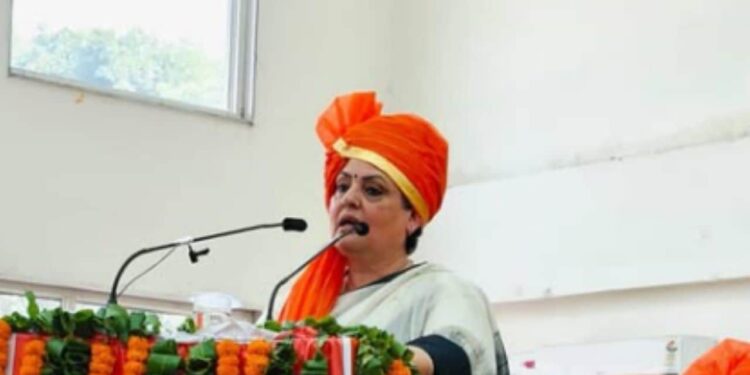Amidst a challenging global economic landscape, India has emerged as a beacon of resilience and growth. With an impressive 7.33% growth in exports (merchandise and services) during April to October 2024, India is cementing its place as a global economic powerhouse. This success story is underpinned by robust service exports, which grew by an astounding 12.66% to reach US$ 216.27 billion during the same period, compared to US4 191.97 billion in 2023.
As the world grapples with economic uncertainty, India’s growth story stands out. The International Monetary Fund (IMF) projects global growth at 3.2% for both 2024 and 2025, while India’s growth projections for the same period are 7.0% and 6.5%, respectively. These figures underscore the country’s unmatched economic resilience, positioning it as the fastest-growing major economy.
Strategic Measures for Export Competitiveness
India’s economic success is no accident. It is the result of deliberate and visionary policies that aim to fortify the country’s global competitiveness. One such initiative is the Production-Linked Incentive (PLI) Schemes, which incentivise domestic manufacturers in key sectors such as electronics, pharmaceuticals, and textiles. By promoting high-quality domestic production, these schemes are driving exports while reducing reliance on imports.
Recognising the importance of grassroots development, the ‘Districts as Export Hubs Initiative’ integrates local manufacturers into the global supply chain. By targeting export promotion and employment generation at the district level, this initiative transforms states and districts into active stakeholders in India’s trade ambitions.
To streamline logistics and reduce costs, the Gati Shakti National Master Plan has been instrumental in upgrading infrastructure, including ports, railways, and airports. These enhancements ensure efficient supply chains, enabling faster delivery and improving India’s standing as a reliable global trading partner.
India is also leveraging technology to enhance ease of doing business. Platforms like Trade E-Connect, the National Single Window System, and the Self-Certified e-BRC system simplify regulatory processes and reduce transaction costs. Meanwhile, the E-Commerce Export Hub connects small and medium enterprises (SMEs) to international markets, empowering them to compete globally.
Expanding India’s Trade Footprint
India’s trade policies are designed not only for resilience but also for expansion. The country has concluded 14 Free Trade Agreements (FTAs) and six Preferential Trade Agreements (PTAs), opening new markets for Indian goods and services. These agreements enhance access to international markets, making Indian products more competitive globally.
Merchandise exports have also seen significant growth in key sectors. Between April and October 2024, exports of engineering goods, electronic goods, drugs and pharmaceuticals, organic and inorganic chemicals, and ready-made garments have driven India’s trade growth. These sectors represent India’s ability to deliver high-value products that meet global standards.
Moreover, India’s commitment to quality control is evident in its proactive measures to regulate imports. Through the issuance of Quality Control Orders (QCOs), the government ensures that imports adhere to stringent Indian Standards, safeguarding domestic manufacturers and consumers.
Services Trade: India’s Emerging Strength
India’s services sector is a standout performer in its export story. Services exports have grown faster than the global average, increasing their share in India’s total exports from 32.6% in 2013-14 to 43.8% in 2023-24. This shift reflects the growing importance of services trade in the global economy and India’s leadership in this domain.
From IT and software services to financial technology and healthcare, India’s services are in demand worldwide. The country’s strong digital infrastructure and skilled workforce make it a preferred destination for outsourcing and global service delivery.
Aligning Trade with Viksit Bharat 2047
India’s trade strategy aligns seamlessly with the vision for Viksit Bharat 2047. By fostering sustainable economic growth and ensuring inclusive development, India is on track to become a developed nation by its centenary of independence. Trade plays a pivotal role in this transformation, acting as a bridge between domestic aspirations and global opportunities.
India’s growth in exports is not merely about numbers—it is about creating jobs, empowering communities, and enhancing the quality of life for its citizens. Initiatives like the Districts as Export Hubs ensure that the benefits of trade reach even the most remote corners of the country, fostering equitable growth.
India’s Global Role in Shaping Globalisation
India’s trade success also reinforces its position as a key player in globalisation. As countries increasingly seek reliable trading partners, India’s economic resilience and commitment to quality make it a natural choice.
Through its proactive engagement in international forums, such as the G20 and World Trade Organization (WTO), India advocates for a fair and inclusive global trading system. Its leadership in sustainability, as exemplified by its contributions to the International Solar Alliance (ISA), further solidifies its reputation as a responsible global partner.
A Visionary Trade Ecosystem
India’s trade ecosystem is a model of innovation, inclusivity, and sustainability. The combination of policy reforms, technological advancements, and infrastructure development ensures that the country remains competitive in a dynamic global environment.
As India’s exports continue to grow, they serve as a testament to the nation’s adaptability and determination. More importantly, they signal India’s readiness to lead in the age of globalisation. By aligning its trade policies with its vision for Viksit Bharat 2047, India is not just participating in globalisation but shaping its future.
India’s rise on the global stage is more than an economic achievement—it is a call to reimagine globalisation as a force for good. With its unwavering commitment to growth, innovation, and inclusivity, India is not just a player in the global economy; it is a leader defining its trajectory.
—The author, Rekha Sharma, is Member of Parliament, Rajya Sabha, and former Chairperson, National Commission for Women. The views are personal.














